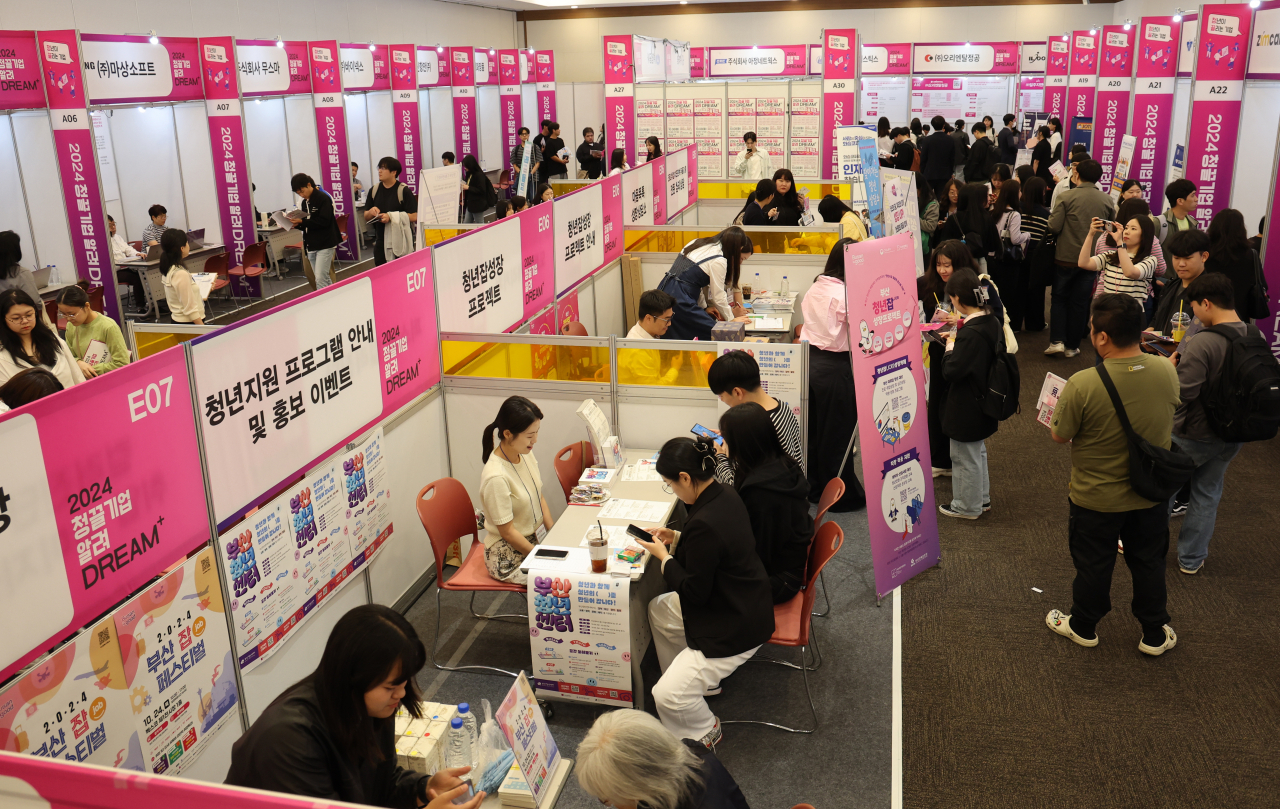 |
Young job seekers at a career fair in Busan, Oct. 8 (Yonhap) |
Young South Koreans entering the workforce increasingly find themselves taking on "irregular" jobs -- positions that fall outside traditional full-time employment, the latest government data shows.
Four out of 10 workers aged 15-29, primarily first-time, entry-level job seekers, now hold irregular positions, marking the highest level since the government began tracking these statistics in 2003, Statistics Korea reported Sunday.
Irregular employment encompasses a broad category of nonstandard employment including temporary employment with fixed end dates, part-time work, agency staffing and independent contracting. These roles often offer less stability and fewer benefits than traditional full-time positions.
The government statistics body said irregular workers in this age group reached 1.46 million as of August, representing 43.1 percent of all paid workers in that demographic. The figures have climbed steadily over the past decade, jumping from 1.07 million in 2014 -- a 37 percent increase.
As irregular jobs have surged, regular employment has seen a parallel drop. The number of regular workers aged 15-29 dropped from 2.28 million in August 2014 to 1.93 million this year, falling below 2 million for the first time.
Data shows that the rise in irregular work among young adults is mainly driven by a surge in part-time positions. Over the past decade, the share of part-time employment within irregular jobs for the 15-29 age group nearly doubled, growing from 12.4 percent to 24.1 percent.
Two-thirds of South Korean part-time workers aged 15-29 reported choosing part-time work voluntarily, with 60 percent of those expressing satisfaction with their working conditions.
The flexibility to balance work with education or other commitments may explain why younger workers opt for these positions, experts say, with many still in school or pursuing full-time job opportunities.
Overall, South Korea’s rate of workers in part-time positions across all age groups is below the Organization for Economic Cooperation and Development average, and lower than that of major countries such as Australia, Japan, Germany, the United Kingdom and Canada.
However, when it comes to temporary workers, South Korea ranks second-highest among OECD countries, with 27.3 percent of its salaried workforce in such positions in 2022.







![[Today’s K-pop] Blackpink’s Jennie, Lisa invited to Coachella as solo acts](http://res.heraldm.com/phpwas/restmb_idxmake.php?idx=644&simg=/content/image/2024/11/21/20241121050099_0.jpg)